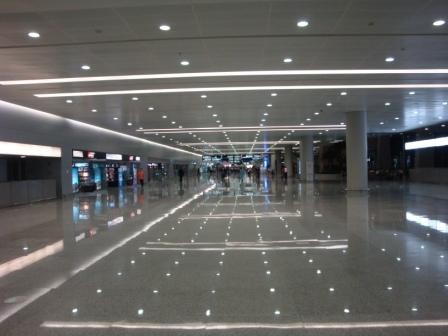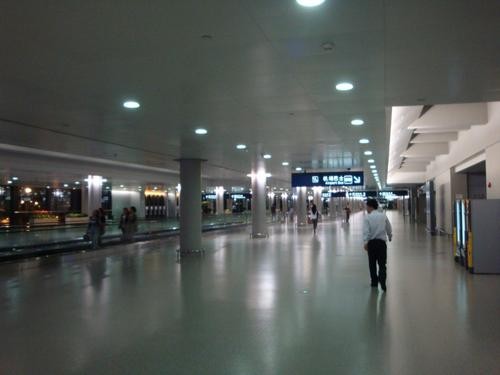Of Barkless Dogs and Speechless Indians: My Early Days in China
Garrulous Indians and a Wise Old Owl
Before coming to China, I had a few apprehensions — mostly acquired through the aspersions people cast during casual conversations. The problem with us Indians is that we are exceedingly garrulous. We can speak on any subject off the cuff. We don’t need to know much, or even little, and yet we can deliver a long lecture on it. Born panjandrums, we seem to have an inborn skill to pontificate. Since there are no free grey cells in our brains to hold superfluous matter, why bother acquiring more knowledge?
“A wise old owl sat on an oak,
The more he saw, the less he spoke,
The less he spoke, the more he heard.
Why aren’t we like that wise old bird?”
— Anonymous
Well, if I ever meet this “Mr. Anonymous,” I’d tell him he’s an idiot. Ask any Indian: owls are not wise. Call someone an owl here and you’ll be in trouble. For that matter, you can’t call anyone a crow, vulture, eagle, or sparrow either. And if you think that’s because we hate birds, try calling someone a pig, an ass, or a dog. We dislike animals too — especially the one that walks on two legs, except for the buddy we see in the mirror.
Perhaps the only exception is the cow. Calling someone a cow won’t invite abuse because cows are holy. But you can’t call someone a “saand” (a stray bull), which is highly offensive. Nor can you call anyone a monkey. Cricket fans might remember when Harbhajan Singh was fined for calling an Australian cricketer a monkey. I doubt if Harbhajan even knew the meaning of the word. More likely, he had let slip a juicy, onomatopoeic abuse, half of which produced the same vibrations on an Englishman’s ear as the word “monkey.”
But let me return to the subject of talkative Indians.
“Instead of listening to what is being said to them, most people are already preparing what they are going to say.”
— Author Unknown
I am no different. I don’t listen much; I mostly speak. In my defense, I am hard of hearing, and excessive talking has become an involuntary self-defense mechanism. In my case, it’s let loose.
A Bias, a Mindset, and a Silent Airport
So I came to China with a definite bias, a tilt to one side. This placed me at a disadvantage. My speech — until then an asset — became useless. The moment I stepped into Shanghai’s Pudong Airport, I became literally speechless. Not that I lost the ability to use my vocal cords, but the saliva in my mouth dried up and my tongue stuck to my palate like chewing gum. I had never seen such a beautiful airport. And with all my preconceived notions, it looked even more imposing.
First Journey: From Pudong to Dinghai
I took a connecting luxury coach to Hongqiao Airport, from where I had to catch another flight to Dinghai. It was late at night by the time I arrived.
I had been told what to do after landing in Shanghai, but I wasn’t prepared for what I saw. The year was 2009. Neither the internet nor mobile phones were what they are today. I carried an old cell phone — one step ahead of a pager, but just barely. And once I landed, it became useless anyway. I needed a Chinese SIM, but above all, to do anything in China, I needed to know Mandarin — which I didn’t.
So I walked out of the airport exit into the free world, and the oppressive communist regime I had imagined shattered like glass. The sun hadn’t yet set, and I stood in line with others waiting for the interconnecting coach to Hongqiao.
In the queue, one man stood out. He looked distinctly different from the diminutive rest. He wasn’t Chinese. He was Filipino — the site manager of the project I was to join. He was also the very person I had been speaking to from India all these days. What a relief to find someone who could understand me.
Through Shanghai Roads
The coach sped through the busy Shanghai roads, which left me spellbound. Soon the sun set, and with fatigue catching up after a long flight, I dozed off.
The Filipino manager was returning from his home, where he had gone for a short break during Chinese New Year — the long holiday break the Chinese take from their relentless routine of hard work throughout the year. We were scheduled to fly to Dinghai in Zhoushan City, Zhejiang Province.
But the flight was delayed by bad weather. When we finally landed and reached the hotel, it was 9:15 P.M. It was raining. Outside, a few dinghy carts sold street food, but nothing appealed to me. The manager helped me buy some, but it was far from my taste. That night, I went to bed tired, hungry, and overwhelmed.

